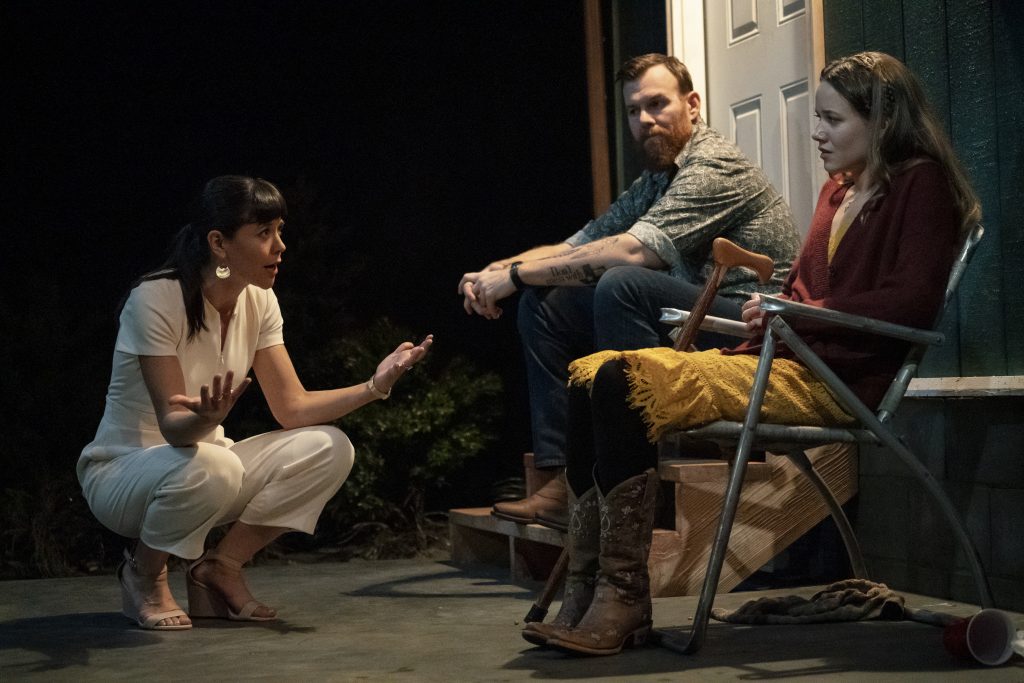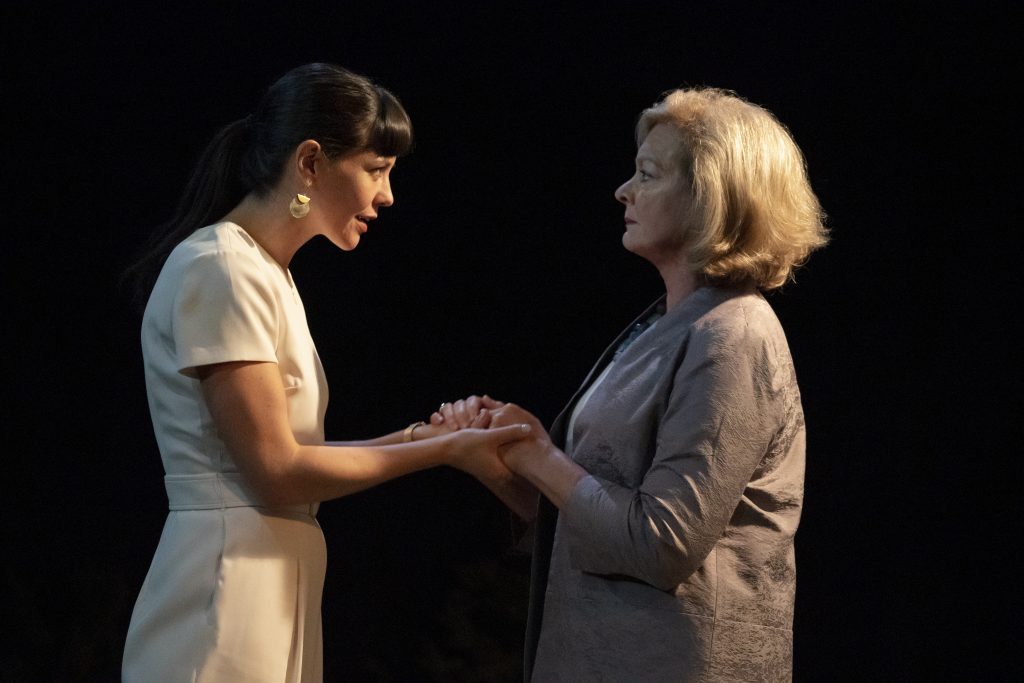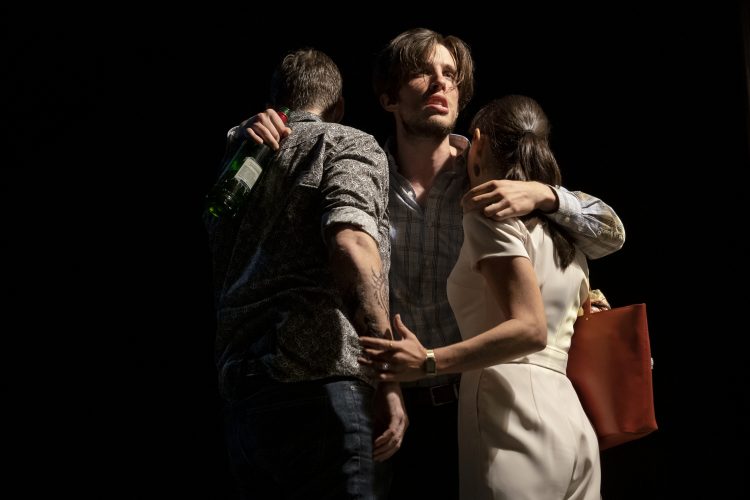Your eyes adjust to the dark, your ears to the silence. A figure on a back porch reaches for a rifle. Gunshot. Your ears ring. The man ambles offstage and reenters shouldering a deer. The carcass flops on the deck, the knife goes in. Blackout.
So begins “Heroes of the Fourth Turning,” a gripping new play by Will Arbery, at Playwright’s Horizons through November 17. It’s a brilliant opening for many reasons: It waves guns and dead animals in the faces of enlightened New Yorkers; it effectively introduces the laconic Justin, played with grim determination by Jeb Kreager (the rare actor whose real name is probably a better fit for his character); it lends symbolic weight to the story; and it provides a nonverbal counterpoint to the ensuing flood of words.
And flood is no exaggeration. The torrent of borrowed, coked-up eloquence that pours from Zoe Winters’ Teresa requires every inch of concentration to follow. It’s worth following, too, because unless you’ve read Strauss and Howe and their popularizer Steve Bannon, chances are you’ve never heard its like before. Their Fourth Turning theory gives the play its name and Teresa her mission: to make the world safe for Catholic conservatism.

She and two other alumni of a tiny college in Wyoming have gathered at Justin’s house to toast their mentor’s appointment as college president. Together they make up a representative sample of an obscure milieu known intimately to the playwright, the son of two Catholic conservative academics. Justin stands for quietism posing as pragmatism, Zoe for revolutionary heroics/histrionics. Julie McDermott’s chronically ill Emily embodies doubt and the moderation it engenders. And John Zdrojewski’s self-loathing onanist Kevin is Catholic guilt personified.
What really sets Arbery’s writing apart is his ability to breathe life into schematic types. Playwrights tend to excel at one or the other—big ideas or big characters—but Arbery delivers both. He does this by creating characters who live and die by big ideas, who each have their cross to bear. Whining, cowering, begging, weeping, vomiting, but never boring—Kevin is a distant American cousin of Dostoyevsky’s underground man. Justin’s suffering is less flamboyant, but no less evident. Emily quietly stores up the agony of Lyme disease for a final outburst. Only Teresa seems impervious to pain—at least until her mentor appears, slightly tipsy from her fêting.

Played with the casual dominance of someone accustomed to power, Michele Pawk’s Gina drops by only to knock down Teresa’s house of cards and reduce her to a trembling freshman. It’s a fascinating scene, as it illustrates just how monolithic Catholic conservatism is not.
And that may be the main takeaway for those who picture the Christian right as a united front. How ever repugnant some of their views may strike those on the left (and there were gasps and groans aplenty from the audience, especially during the abortion debate) there is little agreement within the community. Recognizing this is the first step towards opening a much-needed dialog between the camps. For it reveals the true nature of the other side: a group of individuals to be approached individually, not a faceless mob of fanatics that can’t be reasoned with.
As pure theatre, “Heroes of the Fourth Turning” triumphs. It never drags, despite a two hour runtime. Director Danya Taymor ratchets up the tension gradually, like an inquisitor tightening the rack. And the actors never stumble, unless on cue. My only objections were to Emily’s closing rant and the heavy-handed symbolism of the generator. Both of these merely virtue-signal what we already know full well: that the playwright has distanced himself from this community. How else could he have written such an honest play?
“Heroes of the Fourth Turning” is running at Playwrights Horizons through November 17. For more information visit playwrightshorizons.org.

